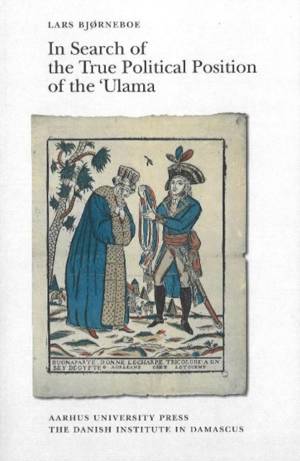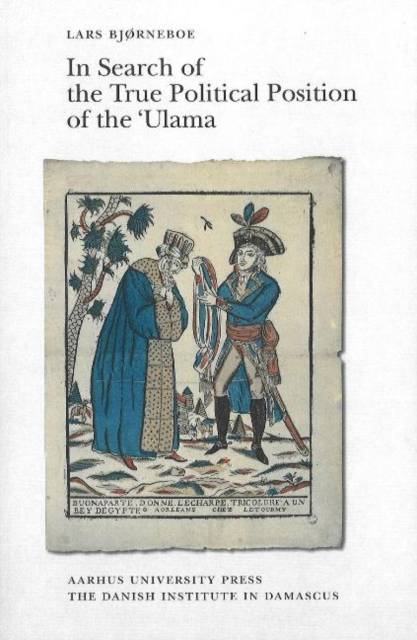
Bedankt voor het vertrouwen het afgelopen jaar! Om jou te bedanken bieden we GRATIS verzending (in België) aan op alles gedurende de hele maand januari.
- Afhalen na 1 uur in een winkel met voorraad
- In januari gratis thuislevering in België
- Ruim aanbod met 7 miljoen producten
Bedankt voor het vertrouwen het afgelopen jaar! Om jou te bedanken bieden we GRATIS verzending (in België) aan op alles gedurende de hele maand januari.
- Afhalen na 1 uur in een winkel met voorraad
- In januari gratis thuislevering in België
- Ruim aanbod met 7 miljoen producten
Zoeken
In Search of the True Political Position of the 'Ulama
An Analysis of the Aims and Perspectives of the Chronicles of 'Abd Al-Rahman Al-Jabarti (1753-1825)
Lars Bjørneboe
€ 86,45
+ 172 punten
Omschrijving
In this book, Lars Bjørneboe explores the three known works of the Cairene historian al-Jabarti: MS Mudda (1799), MS Mazhar (1801), and MS Aja'ib (1805-06). These chronicles - praticularly the last - are the best known and most widely used narrative sources in Arabic for the final period of Ottoman rule in Egypt in the years around 1800. However, although widely published, edited and translated into European languages, no systematic analysis of their aims has, until now, been undertaken. Through a textual approach Lars Bjørneboe uncovers al-Jabarti's underlying political ideology, as well as the intellectual and political context within which he worked. The author concludes that the first of al-Jabartis chronicles, the MS Mudda constitutes a contribution to a debate among the Cairene 'ulama as to how they should respond to the new French masters. This, and the following editions, was written under the patronage of the shaykh al-Sadat, one of Egypt's leading 'ulama at the time. Al-Jabarti and his patron - in contrast to other top 'ulama, notably shaykh 'Abdallah al-Sharqawi - promotes the view that the 'ulama should only cooperate with the French when absolutely necessary. The MS Mazhar reflects the serious opposition met by the Ottomans when attempting to bring Egypt once again under direct Ottoman rule, while the MS Aja'ib should be seen as a plea for an ideal government with Muhammad 'Ali as the just ruler who governs in consultation with the 'ulama.
Specificaties
Betrokkenen
- Auteur(s):
- Uitgeverij:
Inhoud
- Aantal bladzijden:
- 360
- Taal:
- Engels
- Reeks:
- Reeksnummer:
- nr. 5
Eigenschappen
- Productcode (EAN):
- 9788779342811
- Verschijningsdatum:
- 16/02/2007
- Uitvoering:
- Paperback
- Formaat:
- Trade paperback (VS)
- Afmetingen:
- 159 mm x 238 mm
- Gewicht:
- 68 g

Alleen bij Standaard Boekhandel
+ 172 punten op je klantenkaart van Standaard Boekhandel
Beoordelingen
We publiceren alleen reviews die voldoen aan de voorwaarden voor reviews. Bekijk onze voorwaarden voor reviews.









